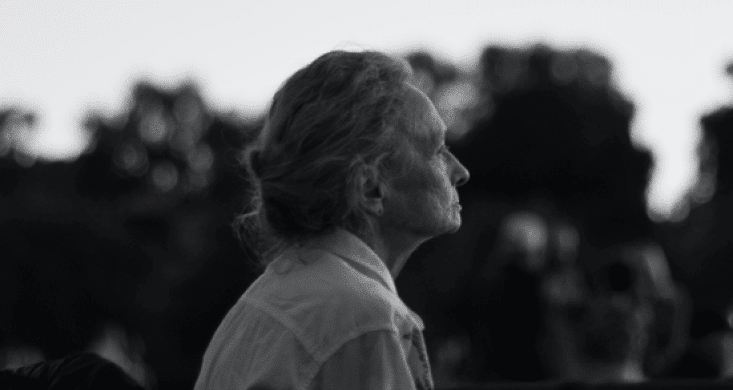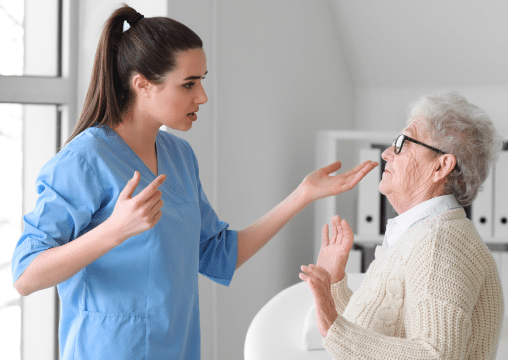Elder abuse is a blanket term for any knowing, intentional, ornegligent act that causes or risks harm to a vulnerable adult. In this context, a vulnerable adult is an older individual who is functionally unable to care for themselves. An example of elder abuse would be hitting an elderly person, tricking a person with Alzheimer’s into changing their will, or leaving a bedbound individual to lie in their own bodily waste because you neglected to take them to the bathroom.
Who is being abused?
Studies on the impact of race show mixed results, and it appears socio-economic status is a more significant determinant of elder abuse. Cultures that tend to live in multi-generational households might protect elders from abuse by professional caregivers while concealing abuse by family members. LGBTQ elders are often at particularly high risk of being mistreated and may face homophobic or transphobic treatment as well. In one study of gay, lesbian, and bisexual elders, 65% of respondents reported experiencing victimization due to their sexual orientation.
Some of these risk factors tend to overlap. For example, an elder with no close relatives looking out for them may also be socially isolated.
How common is elder abuse in the United States?
About 1 in 10 adults in the U.S. have experienced elder abuse, but unfortunately, many people mistakenly think elder abuse is a rare or non-existent problem. Only about 1 in 24 cases of abuse are reported to the authorities. Many elders are too isolated to be able to report these crimes. Some may be embarrassed to admit that the abuse happened or may wish to protect the person responsible.
While studies vary, the general consensus indicates that psychological or emotional abuse is more common than other types of abuse, with one study showing that 11.6% of elder abuse was psychological, and another 4.6% was emotional. In other words, the most common form of elder abuse takes the form of threats, intimidation, guilt-tripping, gaslighting, and other forms of psychological or emotional victimization. In many cases, the perpetrator has real or perceived power over the vulnerable adult. Relationships can become imbalanced, such as spousal relationships where one spouse is healthier than the other.
However, another study showed that financial abuse was more common, with 61.8% of callers to a National Center on Elder Abuse (NCEA) resource line claiming financial abuse by family members. Financial abuse sometimes happens when a family member gets control over the elder’s accounts due to power of attorney or otherwise. They then pocket the money or spend it on other family members, leaving the elder in poverty.
As many elders live in nursing communities, most abuse happens there. Abuse in nursing homes is less well studied, but one national survey showed that 3% of nursing home staff witnessed at least one incident of physical abuse. In the same study, 10% were willing to admit to committing an act of physical abuse, and 40% admitted to psychological abuse. Nursing home residents who receive fewer visits from family and loved ones are particularly vulnerable to various types of abuse.
Who are the perpetrators of elder abuse?
Caregivers can become abusive if they burn out and become resentful of their relative or if they start fighting over money. The more dependent the older adult is on the caregiver, the higher the risk of abuse.
Most perpetrators tend to be male, reflecting broader patterns of domestic violence. In terms of the relationship to the victim, the most common perpetrator is either an adult child or the victim’s spouse, but other family members may be involved. Elder abuse in these instances takes place mostly at home.

Long-Term Effects of Elder Abuse
Elder abuse can have several long-term effects, some of which can persist after the abuse stops. Long-term effects can include:
- Deterioration in relationships
- Feelings of shame and guilt
- Loss of self-esteem
- Diminished psychological wellness
- Depression
- Post-traumatic stress disorder
- Increased cognitive decline or functional impairment
- Diminished independence (particularly after financial abuse)
- Loneliness
- Sleep disturbances
Who can help prevent elder abuse?
Anyone who is in contact with an elder or observing one can help. Older people can also help protect themselves by, for example, keeping a close eye on their finances and learning how to recognize scams.
Here is just some of what you can do to help prevent elder abuse:
- Be alert for the signs listed above that can help you detect possible abuse.
- Learn how to report elder abuse to the proper authorities.
- Check on your older friends and relatives regularly, especially if they live alone or in a nursing home because nursing home abuse is common.
- Encourage your older friends and relatives to take care of their health and stay active and connected in the community.
- Educate older friends and relatives about scams, including ensuring that they don’t give personal information over the phone.
- Listen to complaints from seniors concerning possible abuse.
Remember that you are not helpless in these situations. Elder abuse is a criminal offense in most places, and if needed, you can report an incident of elder abuse to the authorities.
What happens when you report elder abuse?
When you report an incident, it goes through these steps or similar:
- The call is screened to see how serious the situation is. All information is kept confidential.
- If the call appears to indicate an abusive situation, a caseworker is assigned.
- The caseworker investigates the situation.
- If the abuse is not substantiated, the person will be offered other social and health services, which they can refuse.
- If the abuse is substantiated, crisis services are made available. The police may become involved if the law has been broken.
There is no penalty for reporting suspected abuse that isn’t substantiated, and you may still help the person get the help they need.
Elder abuse is a genuine problem that has become even more common recently. Unfortunately, abuse is sometimes left unanswered, so it’s important for older people, caregivers, and the public to become more aware of the situations that can occur. Know the warning signs of elder abuse and what to do if you suspect it, and you can help keep vulnerable people safe.


